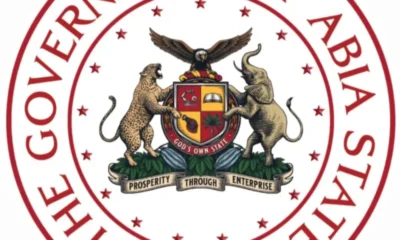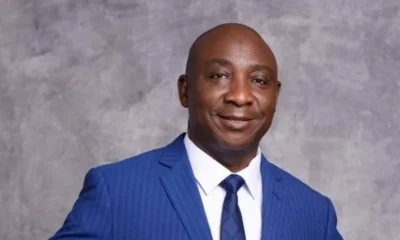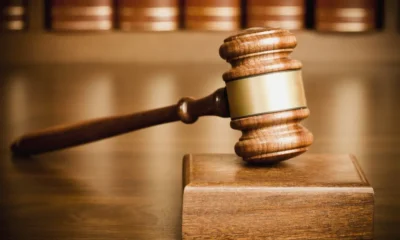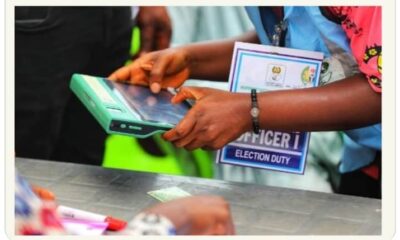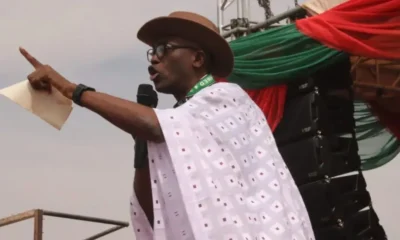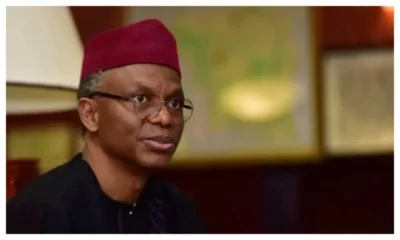Politics
APC begins moves to reinstate Ndume as Senate Chief Whip
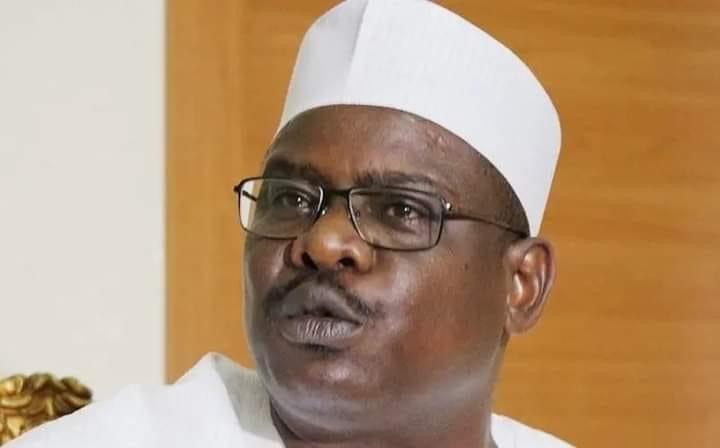
The ruling All Progressives Congress has begun consultations with the leadership of the Senate to facilitate the reinstatement of Senator Ali Ndume as the Chief Whip.
The move comes one month after Ndume, representing Borno South Senatorial District, was relieved of the position for repeated public criticisms of President Bola Tinubu and the ruling APC.
The Borno lawmaker claimed that the President had been caged and shielded from feeling the hardships Nigerians were passing through, an action that irked the ruling party.
Ndume was immediately replaced by the senator representing Borno North, Tahir Monguno, following a directive issued to that effect in a letter written by the APC National Chairman, Abdullahi Ganduje, and National Secretary, Senator Basiru Ajibola.
The request was put to voice votes by the Senate President, Godswill Akpabio, and loudly affirmed by all the APC senators.
Last Tuesday, a sober-looking Ndume told journalists after a two-hour closed-door meeting with the National Working Committee in Abuja that he had tendered an unreserved apology to the APC.
Confirming the development, the APC National Chairman, Ganduje, said Ndume’s apology was accepted, describing the situation as a family affair.
“We are writing to the National Assembly to convey what has transpired between Senator Ndume and the party. As you are aware, he has apologised to the party with the hope that they can review their position,” Ganduje said.
Three days after the meeting, a source at the party secretariat, who craved anonymity, told our reporter that the party had opened discussions with the leadership of the Senate to review Ndume’s removal as the Chief Whip.
“Just as the national chairman stated on Tuesday, the APC has begun consultation with the Senate leadership. As he rightly said the other day, it is a family issue,” the source said.
When contacted, the Deputy National Organising Secretary of the APC, Nze Chidi Duru, confirmed the ongoing consultation, which, he said, might not necessarily be conducted in public.
Duru, however, said the onus was on the Senate leadership to decide if it was the right call.
According to him, the APC is a law-abiding party that is willing to welcome back prodigal and erring members once they are willing to retrace their steps and abide by the party’s Constitution.
He said, “It is for us to recommend to the Senate to do the needful. I believe they are all party members who respect the APC. It is on account of that, when the party felt there was something wrong in the way he addressed the public without allowing the party to hear him out, that we took the steps that we took.
“But he has realised his mistake and came to the party to admit that he should have first discussed it with the APC before going public. In the end, the party looked at it and then had a handshake with him. So it is important that having had that handshake, in the wisdom of the national chairmen of the party, that he communicates to the leadership of the Senate just as we did in the first instance.
“There will be many backdoor consultations and discussions that would address all the parties concerned for the important thing to be done, not just on the surface of it. The APC is a party that is law-abiding and motivates for consensus. You know Ndume is a ranking member of the party and well respected too. That was why we embraced him with a golden handshake and the meeting ended in a convivial atmosphere.”
The National Publicity Director of the APC, Bala Ibrahim, said the move to have Ndume reinstated as the Senate Chief Whip was not strange as the executive and legislative arms were free to reshuffle and reassign portfolios as they deem fit.
“Why not? Of course, there is nothing strange there. This is an in-house thing. Even in the executive arm of the government, a cabinet reshuffle is normal. The legislature can also reshuffle and reassign portfolios. Nobody has an entitlement to any position. It is at the discretion of the leader of the House or the Senate to assign portfolios to people they think can run the office to satisfaction.
“In any case, Ndume is a senior senator for that matter. There is nothing wrong if the Senate finds him good for that position. I don’t think there is any law that says he cannot be reinstated. Moreover, this is one Senate that is trying to be as rancour-free as possible under the leadership of Godswill Akpabio.
“So, I am sure if they feel the need to reinstate him, all the necessary consultations will be made to ensure that it is done in a way that will not create any hitch. This is my belief. He apologised and the party accepted his apology. So it’s an in-house thing. It is a problem within the family that can always be resolved without necessarily going for an intermediary.
“So I believe the party will put in place all the necessary things that need to be done for him to be reinstated. That is not my place to say. It is the discretion of the Senate and the discretion of the party,” Ibrahim said.
Politics
Rigging Fears In Edo, Kaduna As Opposition Alleges Manipulation, Cooked Result
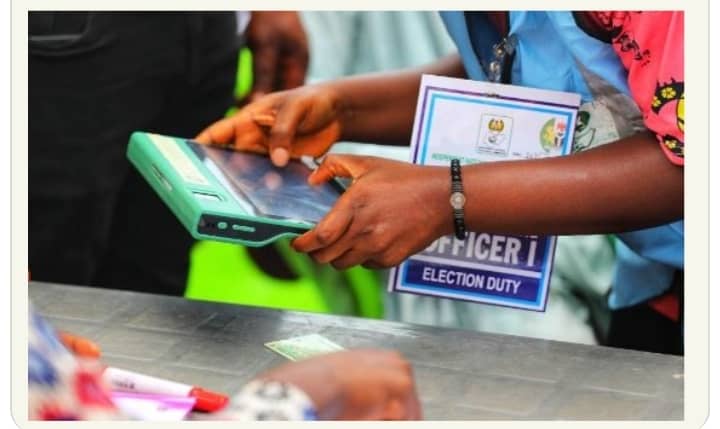
Rigging Fears Grip Edo, Kaduna as Opposition Alleges Prewritten Results, Armed Thugs, and Compromised INEC Officials
Fears of large scale manipulation have cast a shadow over Saturday’s by elections in Edo and Kaduna States, as opposition parties and election monitors allege prewritten results in Government House, deployment of “notorious” INEC officials, plans to use the police to lock out agents from collation centres, and the recruitment of thousands of armed thugs to intimidate voters. While the ruling party has denied wrongdoing, the allegations have ignited concerns that the August 16 polls could become another flashpoint for Nigeria’s crisis of electoral trust.
In Abuja, the Coalition of Observer Groups in Nigeria has expressed deep concern over what it described as credible reports of plans to undermine the Edo Central Senatorial District and Ovia Federal Constituency elections by the APC. In a st atement signed by the group’s chairman, Comrade Simon Diogu, the coalition warned that tactics similar to those alleged during the September 2024 governorship election, including the unlawful preparation of duplicate result sheets before collation and the use of the police to harass and intimidate opposition party members and voters, could resurface.
The September 2024 governorship election left what the group called a lingering crisis of confidence after allegations of duplicate results and questionable collation practices went unresolved by the Independent National Electoral Commission. The coalition cautioned that any repetition of such acts would further erode public trust in the electoral system and would pose a growing threat to the stability of Nigeria’s democracy.
A chieftain of the Peoples Democratic Party in Edo, who spoke on condition of anonymity, alleged that results are being written in Government House ahead of Saturday’s vote. He further claimed that “squadrons of police will be brought in on Friday to prevent us from entering the collation centre on Saturday.”
The PDP chieftain also raised alarm over the perceived deployment of two controversial INEC officials from Rivers State, Suleiman Blessing, Electoral Officer for Ovia North East, and Williams Alamina, Electoral Officer for Ovia South West, both of whom, he alleged, “played very uncomfortable roles during the September 2024 Edo State governorship elections.”
“This is what INEC, APC and the Police did during the governorship elections last year and they want to do the same thing again. If they succeed then Nigerians should just forget about elections in 2027 as they will do the same thing then ask us to go to court,” he said.
The coalition urged Governor Monday Okpebholo, whose home constituency is Edo Central, to publicly condemn alleged threats made by his supporters against opposition candidates on social media, and to guarantee peaceful, violence free elections in his capacity as the state’s Chief Security Officer.
In Kaduna State, the African Democratic Congress and the Social Democratic Party have accused the state’s APC led government of assembling a massive operation to sabotage the by elections, distort the process and steal the elections.
The two parties, contesting in Chikun Kajuru Federal Constituency and state constituencies in Sabon Gari and Zaria, alleged that about 4,000 thugs have been recruited from within and outside Kaduna to intimidate voters and opposition party officials at polling units and collation centres.
They further claimed that senior INEC officials and technical staff are being compromised with inducements, including allocations of land, and that each of the state’s 23 local government councils has been compelled to contribute N30 million to an election sabotage fund. An additional N4.8 billion, they alleged, has been provided from Abuja for vote buying, bribing electoral officers and corrupting security agents.
The coalition of the two parties named a serving Commissioner for Local Government Affairs and a disgraced former senator notorious for orchestrating electoral violence as key figures in the alleged plot.
Both in Edo and Kaduna, opposition groups and election monitors have called on INEC to act swiftly to protect the integrity of the process, including replacing allegedly compromised officials, ensuring open and verifiable collation, and guaranteeing security for voters and party agents.
Neither INEC nor the Nigerian Police have responded to these allegations.
Politics
By-election: ‘You’re too desperate to be Nigeria’s president’ – Abure blasts Obi
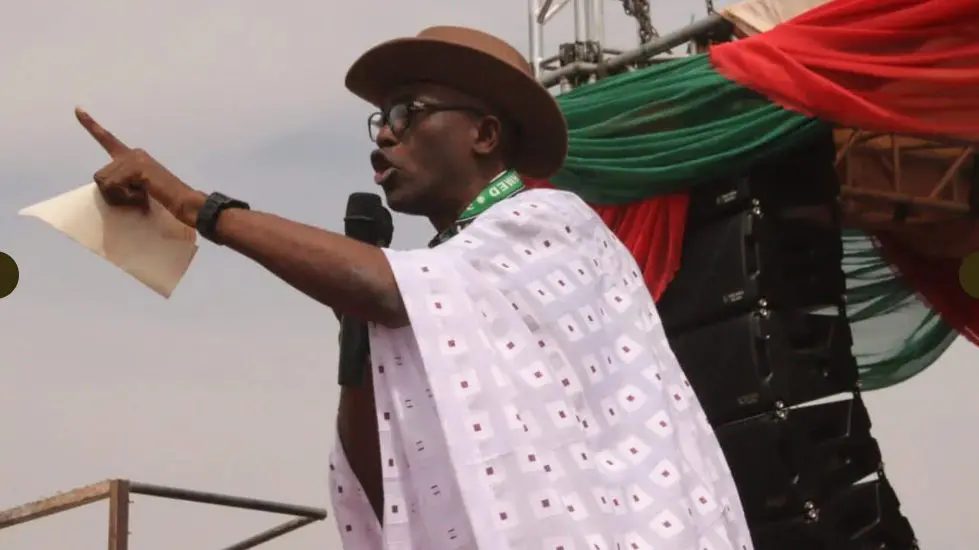
Factional National Chairman of the Labour Party, Julius Abure, has lambasted the 2023 presidential candidate of the party, Peter Obi, stressing that he is too desperate to lead Nigeria as a president.
In a statement he personally signed on Thursday, Abure said Obi created the crisis in the Labour Party.
According to him, Obi’s desperation to control the soul of the party had made him go haywire.
Abure accused the former Anambra State governor of receiving so much goodwill from the party leadership and turning around to pay them with evil.
“This is why we have maintained that Peter Obi lacks the competence, character and capacity to actualise the vision of a new Nigeria.
“Nigerians should not forget in a hurry that it was Peter Obi that created the crisis in the Labour Party which he is now citing as a reason why people should not vote for the party,” Abure said.
Abure said this in response to Obi’s directives ahead of the August 16 by-elections across the country.
Ekwutosblog recalls that Obi had asked his supporters to back the candidates of the African Democratic Congress, ADC, during the forthcoming by-elections across some states in the country.
Politics
Kaduna LG polls: Vote SDP candidates – El-Rufai speaks amid coalition involvement
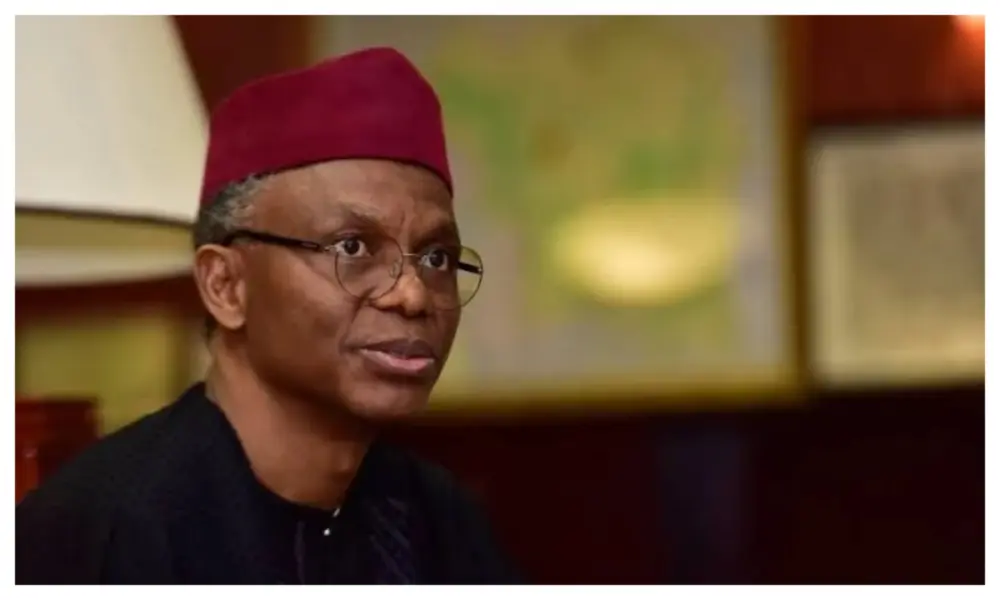
Former Kaduna State governor and a key member of the opposition coalition, Nasir El-Rufai, has urged the people of the state to vote for the Social Democratic Party, SDP, in Saturday’s local government election.
El-Rufai said electorates should vote for candidates of the SDP in Zaria and Sabon Gari Local Government Areas of the state.
His call comes amid his participation in the opposition coalition that recently adopted the African Democratic Congress, ADC.
The coalition, made up of eminent Nigerians, has vowed to ensure that the President Bola Tinubu-led All Progressives Congress, APC, loses in 2027.
However, El-Rufai, in a video on his Facebook page, wrote: “This is Nasir El-Rufai, your former governor of Kaduna State.
“I’m making this message to appeal to all our voters in Zaria and Sabon Gari Local Government to come out massively on Saturday to vote for the candidates of the Social Democratic Party, SDP.
“The party with the symbol of the white horse, white stallion for the Zaria Ekweri state assembly and Basawa constituency in Sabon Gari Local Government.
“The candidate is Nuhu Abdullah Isada of the Social Democratic Party and Dambala Usman of the SDP for Basawa constituency, please come out and vote massively for these two candidates.”
-

 Politics10 months ago
Politics10 months agoMexico’s new president causes concern just weeks before the US elections
-
Business10 months ago
US court acquits Air Peace boss, slams Mayfield $4000 fine
-

 Trending10 months ago
Trending10 months agoNYA demands release of ‘abducted’ Imo chairman, preaches good governance
-
Entertainment10 months ago
Bobrisky falls ill in police custody, rushed to hospital
-
Entertainment10 months ago
Bobrisky transferred from Immigration to FCID, spends night behind bars
-

 Politics10 months ago
Politics10 months agoRussia bans imports of agro-products from Kazakhstan after refusal to join BRICS
-

 Politics10 months ago
Politics10 months agoPutin invites 20 world leaders
-
Education12 months ago
GOVERNOR FUBARA APPOINTS COUNCIL MEMBERS FOR KEN SARO-WIWA POLYTECHNIC BORI

